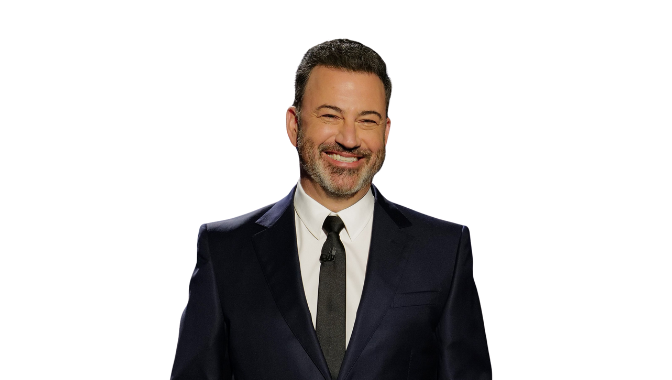


Jay Shetty & Scott Galloway ON The Money Mistake That Keeps You Broke
In this On Purpose episode, Jay Shetty invites NYU professor, best-selling author, and entrepreneur Scott Galloway to break down the myths and realities behind financial security, what it truly means to find and double down on your talents, and how you can transform your relationship with money.
Have you ever questioned whether the traditional markers of success—like earning a certain degree or owning a home—are still relevant in today's economy?
In this On Purpose episode, Jay Shetty invites NYU professor, best-selling author, and entrepreneur Scott Galloway to break down the myths and realities behind financial security, what it truly means to find and double down on your talents, and how you can transform your relationship with money.
In his book, The Algebra of Wealth, Scott Galloway shares insights on determination, purpose, and the drawbacks of a "living to work" mentality. He explains why finding a balance between ambition and self-forgiveness might be essential for creating the life you desire.
Financial Security Then and Now
Scott Galloway told Jay Shetty that for the first time in American history, 30-year-olds today earn less than their parents did at the same age. In his view, the reasons are fiscal and social policies that favor older, established groups. While many consider globalization and technological changes to be the reason behind this disparity, the NYU professor argues that policy decisions have shifted wealth from younger workers to older asset holders.
According to Galloway, mortgage-interest deductions and capital-gains privileges benefit those who already possess properties or portfolios. Jay Shetty points out how this phenomenon impacts people on an emotional level; for the first time in history, younger generations can no longer surpass their parents in terms of financial wealth. In Galloway's view, this contributes to societal anger, division, and skepticism, as a growing number of young people feel disconnected from the system.
So, you need to be able to discern between what is in your power to influence (discipline in spending, creating additional income sources, or investing time in self-improvement) and what is beyond your control (government regulations and global economic factors). Therefore, it is essential to focus on the things that you can influence in your daily life, but also to engage in public decisions, such as voting.
The Core Principles of Saving Money
Scott Galloway introduces Jay Shetty to the concept of forced savings; consumer culture entices us to constantly spend money, but the NYU professor argues this is not the way to wealth. Instead, he suggests establishing automatic contributions to low-cost index funds or tax-advantaged plans that put your money out of immediate reach, to curb the emotional impulse of spending it.
Jay Shetty noticed that people find it increasingly difficult to maintain regular saving habits. According to Galloway, the steep housing prices, mounting college expenses, and constant inflation create a sense of discouragement - young people may find themselves trapped by the bills they need to pay immediately, which leaves them with very little at the end of the month.
Galloway argues that you need to create a routine to help you save money even when it seems like an unattainable goal. He told Jay Shetty that if you start investing small monthly amounts (even 3-5% of your income) already in your twenties, you can get excellent long-term results. He believes that consistency and financial discipline play a key role in improving your financial situation.
Managing Financial Stress
Jay Shetty addresses the emotional response money talks evoke in people - some connect it with unpaid bills, credit card debt, or regret over impulsive purchases. Therefore, many avoid conversations around salaries, expenses, or investments, for fear of looking weak or unsophisticated in front of their peers, so they shut down these discussions instead of exchanging ideas and learning from each other.
When you remain ignorant about your money (investments, taxes, etc.), you will also fear it more, and it is a cycle of perpetuating a lack of financial knowledge among generations. Scott Galloway explains to Jay Shetty that regular discussions with trusted friends, colleagues, or mentors can help you demystify this topic and become better at understanding it. To him, it is like athletes practicing sports - the more you actively learn, the savvier you become.
You need to take into account the mental and emotional barriers, as well. The NYU professor tells Jay Shetty that money remains one of the top reasons for divorce; therefore, he considers it essential to have financial conversations between romantic partners and schedule regular budget reviews. Additionally, investments and large purchases require transparency from both sides to avoid any future conflicts.
The American Dream of Home Ownership
Scott Galloway touches on the American dream of home ownership. The NYU professor explains that investing in real estate isn't a one-size-fits-all strategy for financial success; it depends on many factors, such as location or your personal current situation.
The professor addresses the misconception of homeownership as the primary objective. Depending on your situation—where you live, your job security, family plans—renting and investing your money elsewhere might actually make more sense. Yet, Jay Shetty notes that many still believe that owning a property is what makes someone more accomplished. So, he suggests asking yourself if buying a home is really worth it if the mortgage keeps you from investing in stocks or saving for a rainy day.
Shifting Focus from Passion to Talent
Scott Galloway discusses with Jay Shetty how the common advice of following your passion won't always take you far. Instead, he advises the listeners to search for their talent that can grow into something great, rather than transforming their hobby into a job.
If you're not sure where your strengths lie, the professor recommends working in multiple roles, such as retail, customer service, analytics, consulting, etc. This way, you will be able to learn various skills, but also discover what you are good at. Galloway explains that even failing in a few roles will teach you valuable skills, like bouncing back or solving problems.
The professor believes that excelling in a particular field leads to recognition, fair compensation, and new opportunities, which makes work exciting. He advises young people to opt for a career with strong job prospects rather than chasing fleeting interests.
Rejection Can Teach You a Lot
To succeed, you need to be able to handle setbacks. Scott Galloway explains to Jay Shetty that experiencing rejection is essential for growth. Working in investment banking, he understood that rejection is almost guaranteed to happen if you aim above the average. Similarly, Jay faced nearly a hundred rejections for his podcast before it took off.
So, whether the rejection happens in your career, personal, or dating life, learning to sit with that discomfort pays off down the line. However, if you treat every rejection as a personal judgment, it's easy to get stuck. Instead, Jay Shetty and Steve Galloway suggest seeing it as feedback meant to help you grow and see the next big opportunity.
The professor coaches young men to overcome social anxiety by having them strike up a conversation with a stranger at events. By putting yourself out there time and time again, you learn and grow. Becoming more willing to keep showing up and move on despite rejection is what sets successful people apart.
Trade-Offs
Jay Shetty addresses the topic of work-life balance: for many, it means being able to achieve professional excellence while at the same time maintaining happy relationships, a healthy physique, and practicing self-care. However, Scott Galloway explains that this perfect balance is a mirage; many successful people went through times of imbalance, neglecting relationships, hobbies, or wellness for the sake of building a business or mastering a craft.
The NYU professor shared some insights from people in palliative care - many wished they had been kinder to themselves or had spent more time with their loved ones, above anything else. So, to be able to make strategic choices in your future, you need to be aware of your circumstances and the trade-offs. Be honest with yourself and assess how much time you can dedicate to all areas of your life and which one should take precedence at this very moment.
Jay Shetty clarifies that burnout is not something society should glorify; it is essential to identify what truly matters to you. If you prefer a slower pace, you may feel more fulfilled living in a smaller town; on the other hand, if you are drawn to fast-paced city life, you need to be ready to hustle. Jay Shetty and Scott Galloway advise the listeners to make sure they settle in an environment that reflects their values, so they can live more in tune with their needs.
Climbing the Ladder
If you are looking to climb the career ladder, Scott Galloway shares a pattern he discovered from experience: it's usually only a handful of people who drive a company's success. These people often have similar characteristics, such as a background in competitive sports (demonstrating perseverance), degrees from reputable schools, and a mindset of ownership, willing to go above and beyond to get the job done.
The NYU professor told Jay Shetty that great leaders nurture their employees' talent by setting clear goals tied to equity and promotions. If you remain transparent about the rewards, the employees tend to be more engaged since they are working toward a tangible goal, not just hoping to maybe get a bonus or a raise.
However, Jay and Scott Galloway warn that excelling in these environments means no walk in the park. Galloway notes that great rewards come with great efforts If you want to make it big, you need to be prepared to show focus, grit, alignment, and a sense of true ownership.
More From Jay Shetty
Listen to the entire On Purpose with Jay Shetty podcast episode on “Scott Galloway ON The BIGGEST Money Mistake That’s Keeping Your Broke!” now in the iTunes store or on Spotify. For more inspirational stories and messages like this, check out Jay’s website at jayshetty.me.
Sign up for the only email that puts purpose at the center of your day.




Looking for greater meaning? This quiz shows you how to live with purpose every day.
Take the Quiz
Dreaming of becoming a life coach? This quiz tells you if a coaching career is right for you.
Take the Quiz

Dreaming of becoming a life coach? This quiz tells you if a coaching career is right for you.
Take the Quiz

Everyone communicates differently. Discover your own personal fight style now.
Take the Quiz

Understanding your role in a relationship is the first step to making things work.
Take the Quiz

